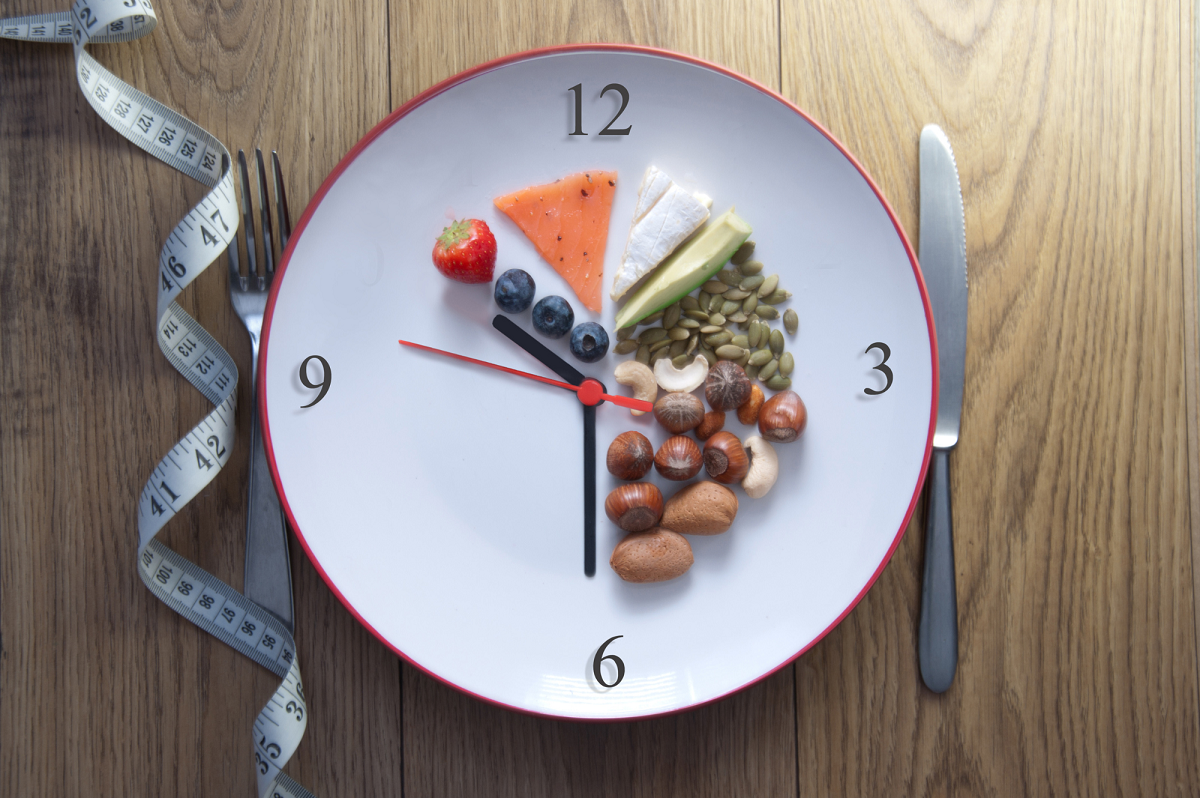
Lose weight with intermittent fasting
To see this as a video click here
Intermittent fasting is where you use fasting for part of the day, rather than a longer term fast. It’s actually something we do each day, we finish eating at the end of the day and then we don’t eat again until breakfast (when we ‘break’ the ‘fast’). With the exception of small babies who need to eat around the clock, your body stores energy to keep you going through the night without any food.
Digestion time
It takes 5 hours to digest a meal, sometimes longer if it was a large meal, so what we generally do is space our meals that far apart to ensure we have a regular supply of energy throughout the day. Then overnight, your body use stores from the liver which last around 10-15 hours. Once the liver stores have been used, your body can fuel on the stored fat as an energy source.
Fasting vs low calorie
One important thing to note here is that fasting is not the same as eating less. To your body, a small meal indicates food shortages, and it holds onto fat for fuel, and slows down metabolism. This usually means you will feel tired, and possibly cold, as your body works hard to conserve energy. Fasting is about eating as much food as your body needs but over a smaller period of time.
How to begin
One of the easiest ways to start with fasting is if you wake up in the morning and you’re not hungry, wait until you do feel hungry, then eat. Eat good healthy food for your first meal as well as for the rest of the day. After dinner, don’t have any snacks, but if you feel like you want something in your mouth, go for a herbal tea or soda water.
There are a lot of recommendations that people skip dinner rather than breakfast, which I agree with, if you normally eat dinner alone. Cortisol levels, along with other hormones that can aid with metabolism, are higher in the morning. However, there are so many health benefits to eating with others and spending time with people over a meal so if dinner is the time that you spend with others, then this is your most important meal. Every traditional culture in the world sees the importance of a shared meal, make sure this is valued even when fasting.
Eating window
It can be really helpful to establish what’s known as an eating window. This is the period of the day when you are not fasting, for example: 10 hours/day or 8 hours/day, with a set start and finish time. You may like to start eating at 9am and finish by 7pm, or start at 11am and finish by 7pm. Find a rhythm that works for your body and your lifestyle, then stick to that. You don’t even have to fast every day, even a few days a week means that you’re allowing your body to use your fats stores as a fuel source.
If you do go for a longer time in the day without eating, be sure to drink plenty of water and add some salt (Celtic sea salt or Himalayan salt) this will help to keep you hydrated. The body needs some salt in order to absorb the water.
Easier fasting
If you understand how your body metabolises food you will probably know that refined carbs give you a quick energy supply, whilst whole carbohydrates are metabolised a little slower. Did you know that fats offer an even slower, longer supply of energy? If your body is used to fuelling on refined carbs most of the time, then switching to fuelling on stored body fats as a fuel source can be really difficult. But there’s something you can do to make this so much easier.
So, in order to prepare for fasting, your diet needs to include healthy fats: nuts and seeds, unprocessed meats, dairy, coconut oil, and olive oil. This way your body will be used to a slow steady energy supply and will find the switch to fuelling on body fat much easier.
If you have a disease that effects your metabolism, or are on medications that are required to be taken with food, be sure to check with a healthcare professional before beginning fasting. But this has to be the easiest (and cheapest) way to lose weight.
To learn more about weight loss, have a look at our weight loss course.












